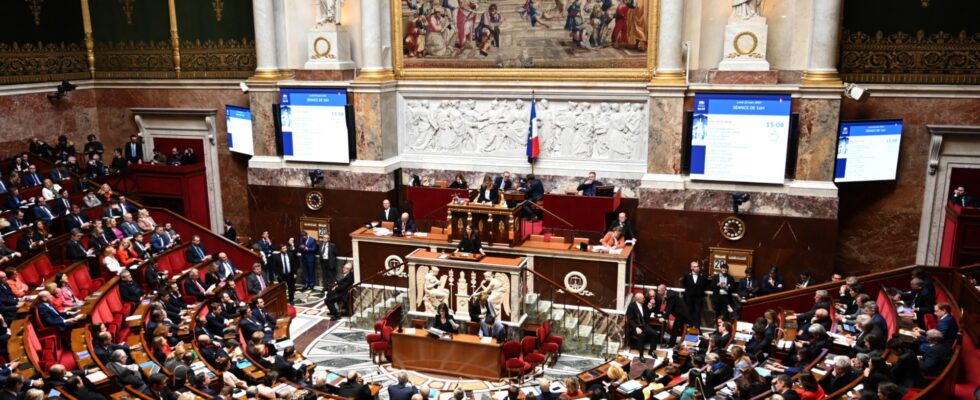A national register of representatives, asset freezes and surveillance boosted by algorithms… A Renaissance text to strengthen the arsenal against foreign interference has passed a first milestone in the Assembly, despite concerns on the left regarding freedoms public. “Foreign interference is a current, real, and immediate threat,” said at the opening of the debates the president of the Laws Committee Sacha Houlié (Renaissance), rapporteur of the bill, resulting from the work of the parliamentary intelligence delegation. .
A “HATVP of interference”
He cited as an example the computer attacks which recently targeted several ministries, claimed by various groups of hackers reputed to be pro-Russian, but also the reproduction of blue Stars of David on buildings in the Ile-de-France region at the end of October, in the midst of the conflict between Israel and Hamas. An operation led by the Russian FSB according to the General Directorate of Internal Security. The text by Sacha Houlié, co-presented with Constance Le Grip and Thomas Gassilloud (both Renaissance) first intends to establish an obligation for representatives of foreign interests to register on a register, an idea inspired in particular by Foreign Agents American Registration Act, with a regime of criminal sanctions for violators.
This register would be managed by the High Authority for Transparency in Public Life (HATVP). “I plead, with the DGSI, for a HATVP of interference,” Interior Minister Gérald Darmanin also declared in the Senate at the end of February. On Wednesday in committee, Sacha Houlié had an amendment adopted to exclude from the system “diplomatic and consular staff”, lawyers in the context of their practice, associations with religious purposes or press publishing companies, with the stated aim of exempt journalists, even if several deputies believe that the wording is too restrictive.
More or less pronounced reservations on the left
To protect ourselves from foreign interference aimed at calling into question the rule of law, we are preparing to call into question the rule of law ourselves”, criticized Antoine Léaument (LFI). Because in addition to this register it is especially the extension of an algorithmic surveillance system initiated in 2015, intended to identify connections on the internet, and today reserved for the prevention of terrorism, which worries the left.
With this law, and for four years of experimentation, the intelligence services could use it under the heading of “national independence”, “territorial integrity and national defense”, “major interests of foreign policy” , “the execution of France’s European and international commitments” and the fight against foreign interference or attempts at interference. “A much too broad framework of use”, likely to infringe “our fundamental freedoms”, criticized Elsa Faucillon (PCF).
Less hostile, the socialist and environmentalist elected officials pleaded in vain for more safeguards included in the law. On “We are not creating a drift net. We are not the Americans, we are not the NSA,” retorted Sacha Houlié, assuring that his proposal has the “sole purpose of fighting against interference.”
A study of the text on March 25
Noting contrasting results in the fight against terrorism due to too many modes of action, MP Renaissance believes that this algorithmic surveillance can give better results in identifying interference “protocols”. According to him, for example, it could make it possible to identify “a Chinese agent who arrives in France, reserves several hotels, cancels them, then re-books several and cancels them in turn”.
The text, which will be studied the week of March 25 in the hemicycle, also plans to freeze the financial assets of foreign people or companies that “harm the fundamental interests of the Nation”, its “economic security” or even “the sincerity electoral processes. “The proposed answers seem timid”, judged for his part LR MP Ian Boucard, believing that the text allowed “the presidential majority (to) settle its political scores with the National Rally”, a few months before the European elections. RN Jean-Philippe Tanguy criticized “a Lilliputian law”.
